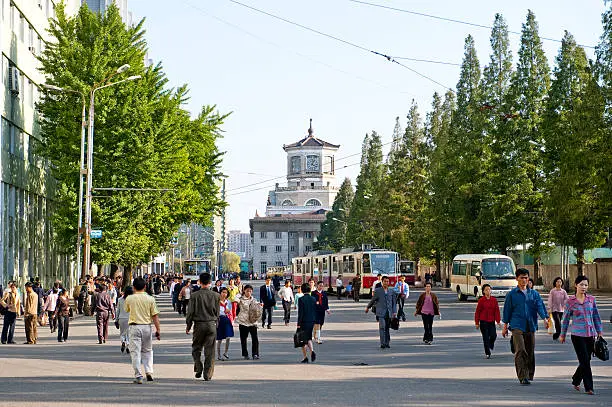Can I Watch Korean Dramas in North Korea? The foreign films and TV shows allowed in North Korea are very limited. Korean dramas are beloved worldwide, but in North Korea, watching them could cost you your freedom—or worse. Let’s uncover the truth about media restrictions in one of the most secretive nations.
People often ask me, what happens if you watch Korean dramas in North Korea? Are foreign movies and TV shows available there? What about Japanese anime or American dramas? Today, let’s tackle these questions together.

What Foreign Media Is Allowed in North Korea?
Interestingly, North Korea does have some legitimate foreign films and dramas. For example, old black-and-white movies from the Soviet Union are still watched by many even today. The state-run Korean Central Television has also aired Chinese classics like Three Kingdoms, Water Margin, and Dream of the Red Chamber, along with TV dramas focusing on anti-Japanese war themes. Additionally, some Hong Kong films are allowed, with Jackie Chan’s movies being the most notable. In fact, even North Koreans who’ve never heard of Coca-Cola know who Jackie Chan is.
The Risks of Watching Banned Content
Aside from these permitted Chinese TV shows, all other Chinese movies and TV shows are banned. If you’re caught, it usually means just a few months of hard labor. As for watching Korean dramas, if your family watches in secret and doesn’t get caught, nothing will happen. But if you are caught, having enough money and influence to ensure that frontline personnel don’t report it can keep you safe. However, for most ordinary people, this is no trivial matter. Authorities will trace the copy’s source all the way back. If you’re the mastermind, the worst-case scenario is execution. Even if you’re merely a bystander who happened to watch it, you’ll still face a stint in hard labor. North Korea’s hard labor camps are nothing like places in China where people barely scrape by—they’re far harsher. You can only imagine what the prison conditions there are like.
Korean Dramas: A Dangerous Secret
In the border areas, people can sometimes pick up signals from Yanbian TV, which often broadcasts Korean dramas. Because of this, all TVs are required to have their signal reception components removed, leaving only the official state channels available. When overseas Chinese families are watching TV and guests come over, they usually turn it off to avoid any trouble. Even for overseas Chinese, watching Korean dramas is prohibited, although the consequences of being caught aren’t as severe for them. For North Koreans, however, it’s a completely different story. I’ve seen many North Koreans who were caught watching Korean dramas—they were punished so harshly that some said they nearly vomited bile. As the saying goes, “if you don’t die, you’ll lose a layer of skin.” In such cases, the best option is to get on the good side of the local authorities.
Censorship at the Border: Inspections and Penalties
Don’t even ask about Japanese comics or American TV shows—I’ve never heard of them being allowed. Let me say it again: they’re simply not permitted. Every person entering the country is subject to inspections, and that includes overseas Chinese. Customs has a special department dedicated to this called the Publication Inspection Office. Electronic devices aren’t allowed to have wireless transmission functions, and if they do, the components will be removed. All books, including Chinese ones, are meticulously checked, word by word.
What do you think about media censorship in North Korea? Share your thoughts in the comments below!